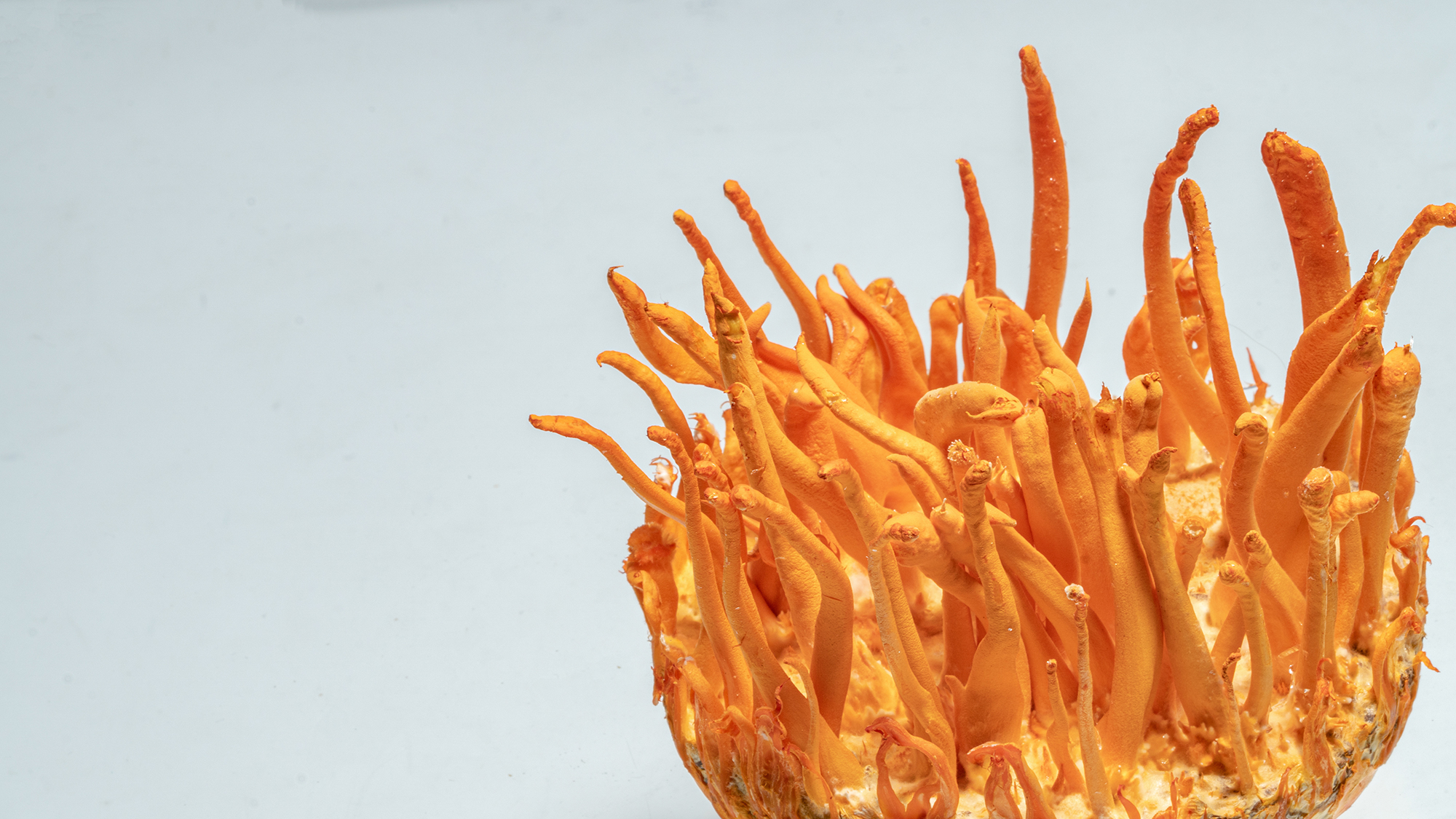
Cordyceps is a type of fungus that has long been used in traditional Chinese medicine for various ailments, such as supporting lung health. Is there any evidence that supports these purported benefits? And does cordyceps have a role in the current coronavirus outbreak?
Does Cordyceps Have a Role in the COVID-19 Pandemic?
This article is for informational purposes only. The current coronavirus outbreak is an ongoing event and certain details may change as new information comes to light. No effective or FDA-approved products are currently available for the treatment of the new coronavirus (also known as SARS-CoV-2 or 2019-nCoV), although research is still ongoing. For now, the best preventive measures you can take against COVID-19 are standard precautions, including social distancing, hand washing, and avoiding touching your face.
During these uncertain times, many people are looking to alternative medicines to possibly treat or protect against the new coronavirus.
One such example is cordyceps, a group of fungi commonly used in traditional Chinese medicine.
Earlier studies do suggest that cordyceps may boost immune function and protect the lungs, but this is primarily based on animal research and the results are far from conclusive [1, 2, 3].
However, there is no evidence that cordyceps supplements or products can prevent or treat the new coronavirus.
What is Cordyceps?
Cordyceps is the name for a group (genus) of fungi, all of which are parasites of various insects or other fungi.
Tinctures and teas from the fungus are used in traditional Chinese medicine for a variety of ailments [4].
When referring to cordyceps, there are mainly two species which are used and researched — C. sinensis and C. militaris [4].
Check out our cordyceps article for more information.
How Does Cordyceps Affect the Immune System?
According to research, cordyceps can influence the immune system in two main ways [5].
On the one hand, cordyceps may be able to stimulate the immune system through several processes, such as [5]:
- Increasing the activity of macrophages, a type of white blood cell
- Increasing the activity of natural killer cells
- Stimulating T-cells
- Increasing the numbers of CD4+ and CD8+ cells
- Increasing the production of IFN-γ
On the other hand, cordyceps may also suppress immune system activity. Although this may seem contradictory, this suppression can have beneficial anti-inflammatory effects, including [5]:
However, it’s important to note that most of this evidence is based on animal and cell studies. It’s not clear if these same effects can be seen in humans [5].
Cordyceps For Respiratory Conditions
Viral Infections
Two mouse studies show that cordyceps extract and its isolated active components may help fight against the influenza virus, which is responsible for the flu [3, 6].
In both of these studies, cordyceps increased immune system activity and improved the survival rate in mice [3, 6].
However, it’s impossible to say if humans can see these same benefits until more clinical research is done.
Improving Lung Function
Several studies suggest that cordyceps may help protect the lungs, primarily through its anti-inflammatory effects [1, 7].
For example, a study of 120 patients with asthma found that those taking cordyceps supplements reported better lung function and quality of life [1].
According to another study of 60 asthma patients, those taking cordyceps supplements had lower lab markers for airway inflammation compared to those not taking the supplement [7].
A number of animal and cell studies have found similar results [2, 8, 9].
Cordyceps has also been reported to improve COPD in some Chinese trials, but we couldn’t access their specifics for a critical analysis [10, 11, 12]. In rats with this condition, Cordyceps reduced airway thickening, inflammatory cell buildup, and cytokine production [13].
Interestingly, some animal studies also suggest that cordyceps may help protect the lungs from damage caused by cigarette smoking [14, 15].
However, not all research has been conclusive. For instance, one study of 85 children with asthma found that an herbal formula containing cordyceps had no effect compared to placebo [16].
Dosage
Talk to your doctor before taking cordyceps. There may be serious interactions with your current medications or health conditions.
Because cordyceps is not approved by the FDA for any condition, there is no official dose. However, there are unofficial doses suggested by supplement manufacturers.
Generally speaking, clinical studies have used 1-3 g/day as the dosage for most cordyceps extracts. Most supplements contain 600-1,000 mg of the extract per capsule.
For example, one study gave participants 1.2 g of cordyceps supplement three times a day for a 3 month period with no reported safety concerns [1].
Takeaway
Cordyceps is a group of fungi commonly used in traditional Chinese medicine.
There’s some evidence that supplementation with cordyceps may help protect the lungs and stimulate the immune system.
However, research in humans is lacking and there is no evidence that cordyceps has any effect on the new coronavirus.
For now, the best preventive measures you can take against COVID-19 are standard precautions, including social distancing, hand washing, and avoiding touching your face.
Learn More
Check out these articles for more information on cordyceps.
Check out these articles for more information on the new coronavirus.

